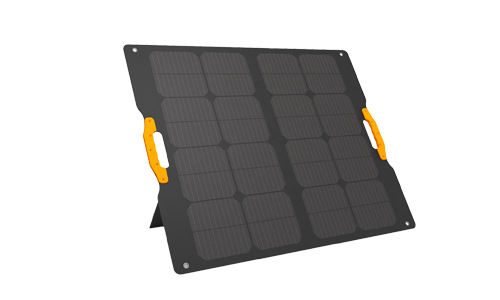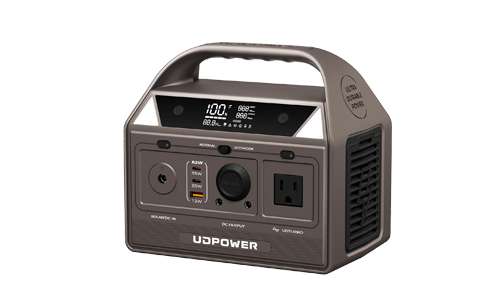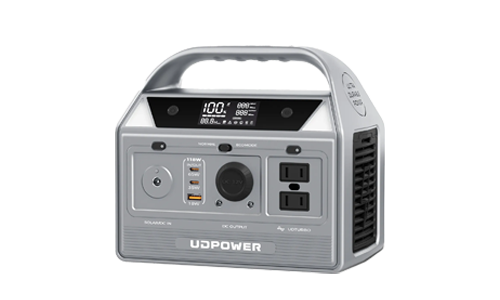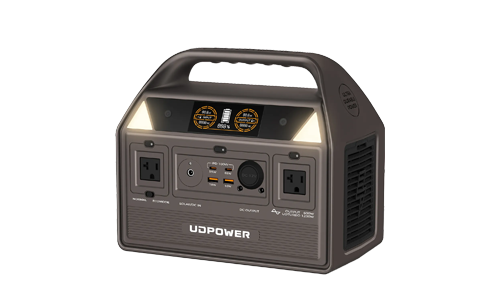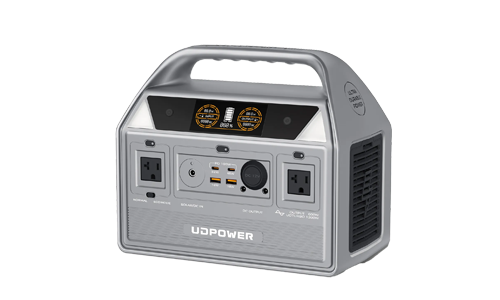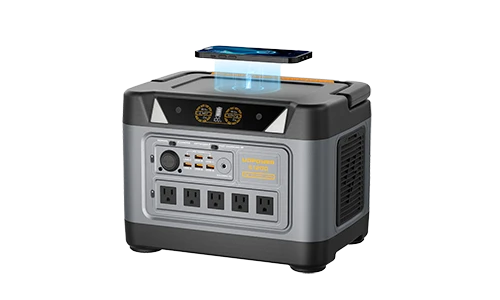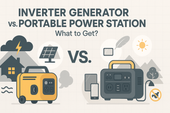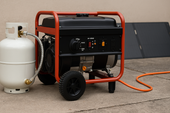Can You Use a Generator in an Apartment?
ZacharyWilliamPower outages hit apartments too — but using the wrong type of generator in a tight, shared building can turn dangerous fast. Here’s a practical, safety-focused guide for renters.

Quick Answer: Generator + Apartment = Usually “No”
When people ask if they can “use a generator in an apartment,” they’re usually talking about a gas, diesel, or propane portable generator — the kind you refuel with gasoline and park outside a house.
- Fuel-powered generators must never be used inside an apartment, hallway, stairwell, garage, or covered balcony.
- They are designed to run outdoors, far away from doors, windows, and vents, which is almost impossible to do safely in most apartment setups.
- Many leases, HOAs, and local fire codes explicitly forbid fuel generators in multi-unit buildings.
That doesn’t mean you’re stuck in the dark. It just means you need the right type of “generator” — usually a battery-based portable power station or “solar generator” — and a realistic plan for what you actually need to power.
Why Gas Generators Are So Dangerous Indoors
Every major U.S. safety agency — including the CDC, EPA, NFPA, and OSHA — agrees on one core rule: never run a fuel-powered generator indoors or in any enclosed or partially enclosed space.
1. Carbon monoxide (CO): the invisible killer
Fuel generators create exhaust that contains carbon monoxide (CO), an odorless, colorless gas that can make you unconscious and kill within minutes in a closed-up apartment. Modern portable generators can produce CO levels that are far higher than a car running in a garage.
In a multi-unit building, that exhaust can seep:
- Under doors and through shared hallways
- Through open windows, vents, and bathroom fans
- Into neighboring apartments above, below, or next door
2. Fire and burn risk
Fuel generators get hot and can spill gasoline or propane. In an apartment, that means:
- Fire risk near furniture, rugs, cardboard boxes, or stored items
- Gasoline cans stored indoors becoming additional hazards
- Sparks or hot mufflers close to flammable construction materials
3. Electrical hazards in tight spaces
Portable generators also create shocks and electrocution risks if:
- They’re used in wet areas (like a balcony in the rain)
- You run undersized or damaged extension cords across hallways
- Someone attempts to “backfeed” power into an apartment panel via a wall outlet
In a house, a licensed electrician can install a transfer switch and dedicated outdoor generator pad. In most apartments, you simply don’t control the wiring or have a safe place to put a fuel generator.
Common “Workarounds” (and Why They’re Unsafe)
Here’s how people often try to use fuel generators around apartments — and why each option is a bad idea.
| Location | Safe? | What’s the problem? |
|---|---|---|
| Inside the apartment (living room, kitchen, bedroom) | Absolutely not | CO poisoning risk is extreme; fire hazard; almost certainly a lease and code violation. |
| In a hallway, stairwell, or shared corridor | No | CO can spread to many units; blocks emergency exits; huge fire and liability risk. |
| On a covered or partially enclosed balcony | Still no | Balconies trap exhaust against the building; CO can drift back into your own windows and your neighbors’ windows above. |
| In an attached or underground parking garage | No | Garages are enclosed spaces; fumes can spread through the whole structure; usually banned by fire code. |
| On open ground far away from the building | Sometimes (but rare for apartments) | In theory, a generator can be used outside, 20+ feet from windows/doors, if your landlord and local rules allow it. In practice, most renters don’t have that kind of space or permission. |
Building Codes, Landlords, and Insurance Rules
Beyond safety, there are rule-of-thumb realities that make fuel generators a bad fit for apartment life:
Fire and building codes
Most U.S. cities use versions of the International Fire Code and NFPA standards. Those codes:
- Restrict storing flammable liquids in multi-unit buildings
- Limit what can be used on balconies and shared areas
- Require safe exhaust and clearance distances that apartments rarely provide
Violating these rules can lead to fines for the property owner — and they will likely pass any consequences along to you.
Leases, HOAs, and insurance
Many leases explicitly ban:
- Fuel storage (gas cans, propane cylinders) inside units
- Combustion devices on balconies or patios
- Any DIY electrical work or generators connected to the building wiring
Insurance companies also take CO incidents very seriously. A single generator accident can affect the entire building’s policy.
This article is general information, not legal advice. Always:
- Read your lease and house rules
- Check posted fire-safety policies for your building
- When in doubt, ask your landlord or property manager in writing before you buy anything fuel-powered
Apartment-Safe Alternatives to Gas Generators
The good news: for most apartment dwellers, you don’t need to run a whole-house generator. You just need a safe way to keep a few essentials running:
- Phones and laptops
- Wi-Fi router and modem
- LED lights
- Medical devices like CPAP
- Possibly a small refrigerator during longer outages
1. Portable power stations (“solar generators”)
Portable power stations are basically large rechargeable batteries with AC outlets and USB ports. They’re often marketed as “solar generators” when you pair them with solar panels, but unlike gas generators:
- They produce no exhaust and no carbon monoxide
- They’re safe to use indoors when used as directed
- They’re quiet — more like a laptop than a lawnmower
- You can recharge them from the wall, your car, or solar panels
2. UPS for your internet and workstation
A smaller UPS (uninterruptible power supply) can keep your router, modem, and maybe a desktop PC running through short blips or brief outages. Many people combine:
- A UPS for instant, automatic switchover for their network gear
- A larger portable power station for hours of runtime
3. Power banks and small DC solutions
For very short outages, high-capacity USB-C power banks can keep phones, tablets, and even some laptops charged. They’re especially useful for renters who travel frequently and want something compact.
How to Size Backup Power for an Apartment
Instead of thinking, “How do I run everything?” it’s smarter to ask, “What do I truly need for a few hours or days?” Here’s a simple way to size a portable power station.
Step 1: List your essentials
Typical apartment essentials and rough wattages look like this:
| Device | Approx. Power (W) | Notes |
|---|---|---|
| Wi-Fi router + modem | 10–20 W | Small draw, but important for work and communication. |
| Smartphone charging | 5–15 W | Usually intermittent; power use is low. |
| Laptop | 40–80 W | Depends on model and workload. |
| LED lamp | 5–12 W | Much more efficient than old bulbs. |
| CPAP machine | 30–60 W | Often a top priority for overnight power. |
| Compact fridge / apartment fridge (running) | 60–150 W (running), higher surge | Compressors draw more power when starting up. |
| Box fan | 30–70 W | Helps with comfort when HVAC is down. |
Step 2: Estimate runtime
Portable power stations are rated in watt-hours (Wh). Roughly, you can estimate:
Because of conversion losses and to protect the battery, you usually get a bit less than the listed capacity. A simple rule of thumb is to assume you can use around 80–85% of the rated watt-hours.
Step 3: Match to a capacity range
- 200Wh–300Wh: Phones, tablets, a router, and one laptop for a workday.
- 500Wh–700Wh: Adds a small fridge or multiple laptops for longer outages.
- 1,000Wh+: Better for overnight CPAP use, fridges, and several devices over many hours.
In the next section, we’ll look at how specific UDPOWER models fit into those ranges for apartment life.
UDPOWER Examples for Apartment Backup (Battery-Only)
UDPOWER makes several LiFePO₄ portable power stations that are well suited to indoor apartment use because they’re battery powered — no exhaust, no gasoline. Below are a few examples you could consider depending on how much backup you need.
A small, lightweight unit that can keep your router, phone, and a laptop running through short outages or brownouts.
Learn more: UDPOWER C200 Portable Power Station

Still very portable, but with more power headroom — handy for working from home, small fans, or a mini-fridge during shorter outages.
Learn more: UDPOWER C400 Portable Power Station

A strong middle ground if you want to run a router, lights, laptop, and a small fridge for several hours without worrying about fuel or exhaust.
Learn more: UDPOWER C600 Portable Power Station

For longer or more serious outages, the S1200’s larger LiFePO₄ battery and higher output can support apartment fridges, CPAP, workstations, and networking gear without fumes or engine noise.
Learn more: UDPOWER S1200 Portable Power Station

These UDPOWER units are examples of the kind of battery-only backup that makes sense in an apartment. You still need to size them to your own devices and usage patterns, but you’re not fighting CO exhaust or fuel storage rules.
Practical Safety Tips for Renters
Whether you choose a portable power station or rely on building systems, a few habits go a long way.
1. Never compromise on CO safety
- Never run a fuel generator inside your unit, on a balcony, in a hallway, or in a garage.
- If your building allows outdoor generator use far away from the structure, follow all placement and exhaust guidelines.
- Install and regularly test CO detectors in your apartment, especially near sleeping areas.
2. Use heavy-duty cords and avoid backfeeding
- Plug appliances directly into a portable power station’s outlets or use heavy-duty outdoor-rated extension cords.
- Do not plug a generator (even a battery one) into a wall outlet — that “backfeeds” the building and can endanger utility workers and neighbors.
3. Protect your electronics
- Look for pure sine wave inverters for sensitive electronics and medical devices.
- If you rely on CPAP or medical equipment, talk to your doctor and equipment provider about backup requirements.
4. Coordinate with your landlord and neighbors
- Let your landlord know if you keep a larger portable power station, especially if you plan to use solar panels on a balcony or patio.
- Set realistic expectations with family or roommates about what will and won’t run during an outage.
Quick FAQs About Generators in Apartments
No. A balcony is still too close to windows and doors, and exhaust can drift straight into your unit or your neighbors’. Most building rules and fire codes treat this as unsafe and prohibited.
Yes, when used according to the manufacturer’s instructions. They don’t burn fuel or emit CO, so they’re designed for safe indoor use. You still need to avoid overloading them and make sure devices are plugged in correctly.
No. That’s called backfeeding, and it’s extremely dangerous. It can send power back into building wiring in unpredictable ways and can be deadly for utility workers or neighbors. Whole-home connections should only be done with a proper transfer switch in standalone homes — not DIY’d in apartments.
Some newer complexes have central backup systems for elevators, emergency lights, or even some outlets. In that case, your best move is to learn:
- Which outlets are on the backup circuit (if any)
- How long the building’s system is expected to run
- What the building expects tenants to do during extended outages
For most renters, the safest, simplest solution is a properly sized portable power station — ideally with a durable LiFePO₄ battery and pure sine wave inverter — combined with good planning and CO detectors. Fuel-powered generators belong outside, far from buildings, and usually aren’t compatible with apartment life.
Conclusion
Traditional gas or diesel generators and apartments simply don’t mix. The combination of carbon monoxide risk, fire hazards, tight spaces, and strict building rules makes them a poor and often prohibited choice.
Instead, focus on safe, indoor-rated backup power: battery-based portable power stations, UPS units, and realistic expectations about which essentials you truly need to keep online. Your future self — and your neighbors — will thank you during the next outage.
